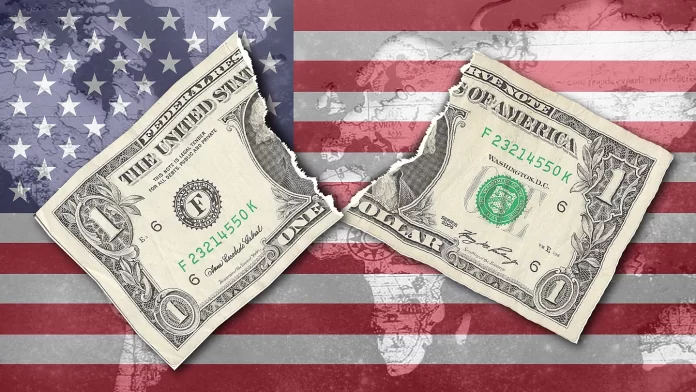Vladimir Putin, the president of Russia, has declared that the US dollar’s hegemony is ending as a result of the rising use of national currencies in international transactions.
During his Friday speech at St. Putin stated at the St. Petersburg International Economic Forum (SPIEF) that the current trend of using local currency in international trade, including the trade in energy, portends the end of the dollar.
According to the Russian president, more than 80% of Russia’s trade with China is currently conducted in either yuan or rubles, while about 90% of Russia’s trade with the nations of the Eurasian Economic Union is conducted in rubles.
Putin noted that the dollar reserves held by the major economies of the world were rapidly declining, as were trade settlements in US dollars, while many countries are promoting plans to establish new reserve currencies.
“Settlements’ percentage of the dollar is decreasing. Settlements made in yuan are increasing in percentage, he claimed.
According to Putin, “Oil producers in the major Arab nations are now declaring that they are prepared to pay for oil in yuan… If this trend picks up steam and additional oil and gas exchanges emerge where settlements are not made in dollars, then this is the beginning of the end for this currency.”.
Putin reaffirmed that neither the domestic Russian economy nor the global economy ever had any intention of dedollarizing.
The US sanctions against Russia following the Ukraine crisis, he noted, forced Moscow to abandon the dollar for other currencies in order to maintain its economy.
“We are not involved in it.
Everything they do is done by hand. They weaken their power, including in the world of finance, by pursuing short-term, opportunistic political goals. Because they cast doubt on the American currency’s dependability as a reserve asset and a method of payment in international trade by using it as a weapon of war, there is no other way to put it, Putin said to the SPIEF forum audience.
Emerging powers are using a multilateral strategy in response to the decline of Washington’s economy and politics.
The Shanghai Cooperation Organization (SCO), which contributes about 30% of the global Gross Domestic Product (GDP), and BRICS, which account for 40% of the global population, have emerged as a result of alliances between Russia and China with other nations and provide an alternative to the Bretton Woods Institutions, led by the United States, in terms of international trade.
Russia, China, Kazakhstan, Kyrgyzstan, Tajikistan, and Uzbekistan make up the SCO, a global intergovernmental organization, while Brazil, Russia, India, China, and South Africa (BRICS) make up the group’s current members.
Following a recent BRICS summit in Cape Town, South Africa, Iranian Foreign Minister Hossein Amir-Abdollahian noted that the five BRICS countries represented a fifth of the global GDP, one-third of its territory, and 40% of its population and that embracing and establishing cooperative relationships with emerging powers will be essential for navigating the complex world of the 21st century.
In this sense, the rise and fall of the United States teaches both allies and foes alike important lessons, namely that the unipolar world order is fundamentally flawed and doomed to failure because it is based on a philosophy that emphasizes Darwinian selection rather than equality for all.
On the other hand, the emerging order calls for collaborative leadership, where nations come together as one collective entity with the objective of addressing today’s problems, such as wars, hunger, climate change, poverty, illiteracy, social-economic gap, and terrorism, as well as the outbreak of disease.
In related news, President Cyril Ramaphosa of South Africa declared on Friday that he and Putin will meet alone to talk about the BRICS summit.
Following a meeting in Kyiv between presidents of Africa and Ukraine, Volodymyr Zelensky, Ramaphosa made his remarks.













